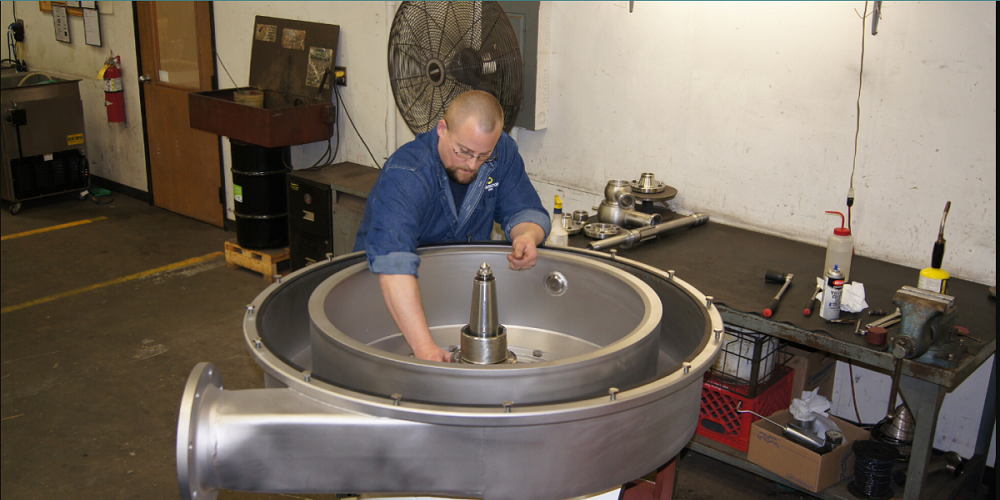An industrial centrifuge is a potent, high-speed rotary separator that separates materials with various densities using centrifugal force. It is large-scale equipment largely employed in the liquid-solid separation process and can be utilized in a wide range of industrial applications, including the treatment of industrial wastes and the production of pharmaceuticals, food, and oil.
Although these centrifuges are built to be incredibly effective and dependable for industrial purposes, some troubleshooting guidelines should be followed when dealing with industrial centrifuge problems, just as with other machinery.
Typical Industrial Centrifuge Issues
Low or no flow rate – A clogged filter, wrong settings, or a problem with the motor may be to blame.
Leaks – Leaks may occur due to gaskets or seals worn out and may call for a new item to solve the issue.
Excessive noise – An imbalanced rotor or bad bearings may be the cause of excessive noise. A comprehensive inspection should be conducted to determine the root of the problem.
Vibration – The centrifuge may vibrate if there is an unbalanced load or worn parts need to be replaced.
Poor separation performance – A clog or a setup issue may be to blame for the industrial centrifuge’s inability to separate materials properly.
Industrial centrifuges can greatly increase the productivity and dependability of industrial processes. However, regular maintenance should be carried out to check for any potential problems, and being able to troubleshoot typical industrial centrifuge problems will assist ensure effective industrial centrifuge performance. In order to make sure that they are operating properly, these centrifuges also need to be inspected and tested on a regular basis.
Tips to Maintain Industrial Centrifuge
If you are experiencing industrial centrifuge issues, it is important to consult with a qualified industrial centrifuge specialist to troubleshoot and repair the machine. They will be able to diagnose the problem and provide you with the necessary repairs and maintenance that your industrial centrifuge needs in order to run optimally.
By following these troubleshooting tips, industrial centrifuges can remain reliable and efficient for many years. With regular maintenance and proper upkeep, industrial centrifuges can continue to provide efficient solutions for various industrial needs.
- Make sure that all parts of an industrial centrifuge are clean and free of dirt or debris. The filter, casing, housing, and seals are all included in this.
- In order to ensure optimal performance, look for any signs of wear and tear on the industrial centrifuge components and replace them as necessary.
- Industrial centrifuges should be regularly inspected to catch any potential problems early and fix them.
- Industrial centrifuges should be stored properly when not in use to avoid dust and grime accumulation on the components and to lengthen their lifespan.
- Follow all safety precautions required for utilizing an industrial centrifuge, such as wearing safety clothing, using lifting aids, and disposing of any hazardous waste generated during use.
By following these industrial centrifuge maintenance tips, industrial businesses can ensure that their industrial centrifuges remain in optimal condition and are ready to provide efficient industrial solutions for many years to come.
Conclusion
Industrial centrifuges are powerful machines used for a variety of industrial applications. To ensure optimal performance, it is important to troubleshoot any issues that may arise and consult with an industrial centrifuge specialist when necessary. Regular maintenance and inspection can also help to keep industrial centrifuges running at peak efficiency.

